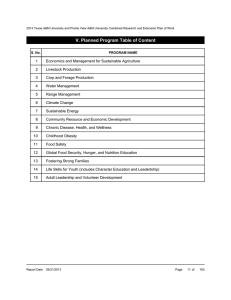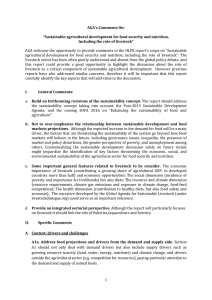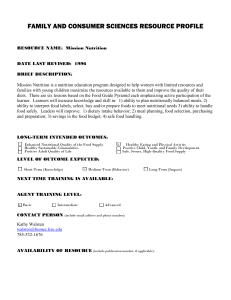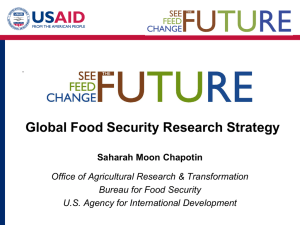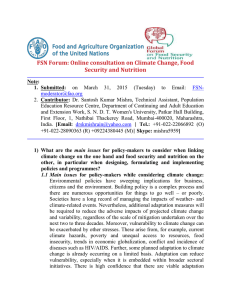Consolidated Comments by the Government of the United States of... CFS Secretariat,
advertisement
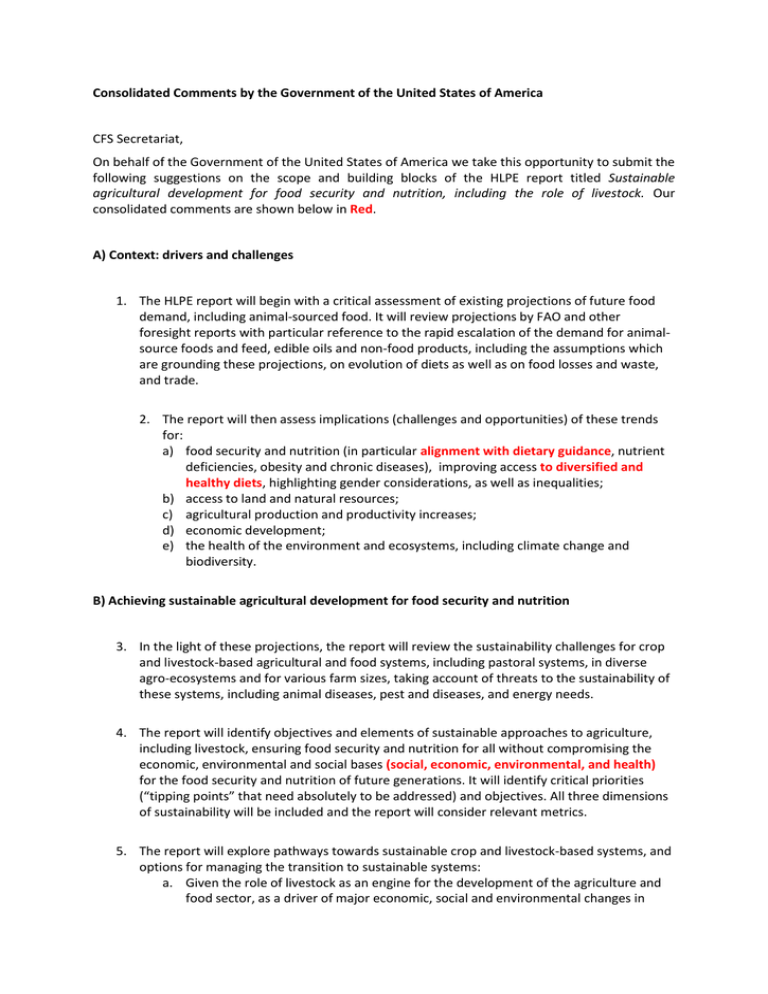
Consolidated Comments by the Government of the United States of America CFS Secretariat, On behalf of the Government of the United States of America we take this opportunity to submit the following suggestions on the scope and building blocks of the HLPE report titled Sustainable agricultural development for food security and nutrition, including the role of livestock. Our consolidated comments are shown below in Red. A) Context: drivers and challenges 1. The HLPE report will begin with a critical assessment of existing projections of future food demand, including animal-sourced food. It will review projections by FAO and other foresight reports with particular reference to the rapid escalation of the demand for animalsource foods and feed, edible oils and non-food products, including the assumptions which are grounding these projections, on evolution of diets as well as on food losses and waste, and trade. 2. The report will then assess implications (challenges and opportunities) of these trends for: a) food security and nutrition (in particular alignment with dietary guidance, nutrient deficiencies, obesity and chronic diseases), improving access to diversified and healthy diets, highlighting gender considerations, as well as inequalities; b) access to land and natural resources; c) agricultural production and productivity increases; d) economic development; e) the health of the environment and ecosystems, including climate change and biodiversity. B) Achieving sustainable agricultural development for food security and nutrition 3. In the light of these projections, the report will review the sustainability challenges for crop and livestock-based agricultural and food systems, including pastoral systems, in diverse agro-ecosystems and for various farm sizes, taking account of threats to the sustainability of these systems, including animal diseases, pest and diseases, and energy needs. 4. The report will identify objectives and elements of sustainable approaches to agriculture, including livestock, ensuring food security and nutrition for all without compromising the economic, environmental and social bases (social, economic, environmental, and health) for the food security and nutrition of future generations. It will identify critical priorities (“tipping points” that need absolutely to be addressed) and objectives. All three dimensions of sustainability will be included and the report will consider relevant metrics. 5. The report will explore pathways towards sustainable crop and livestock-based systems, and options for managing the transition to sustainable systems: a. Given the role of livestock as an engine for the development of the agriculture and food sector, as a driver of major economic, social and environmental changes in food systems worldwide, particular attention will be paid to the role of livestock in these pathways. b. The investigation will encompass practices, including agro-ecological practices, diversification at all scales, as well as broader perspectives from food chains to food systems (including consumption patterns), local versus global approaches, trade and investment. c. The report will identify barriers to change, including in institutions, organizations, policies and governance, and potential options (including their likely consequences) to overcome them. d. It will cover the enabling environment necessary to trigger or accompany transition: the role of public policies and tools to promote and facilitate transition to sustainable systems. 6. Conclusions and recommendations for policies and actions.
